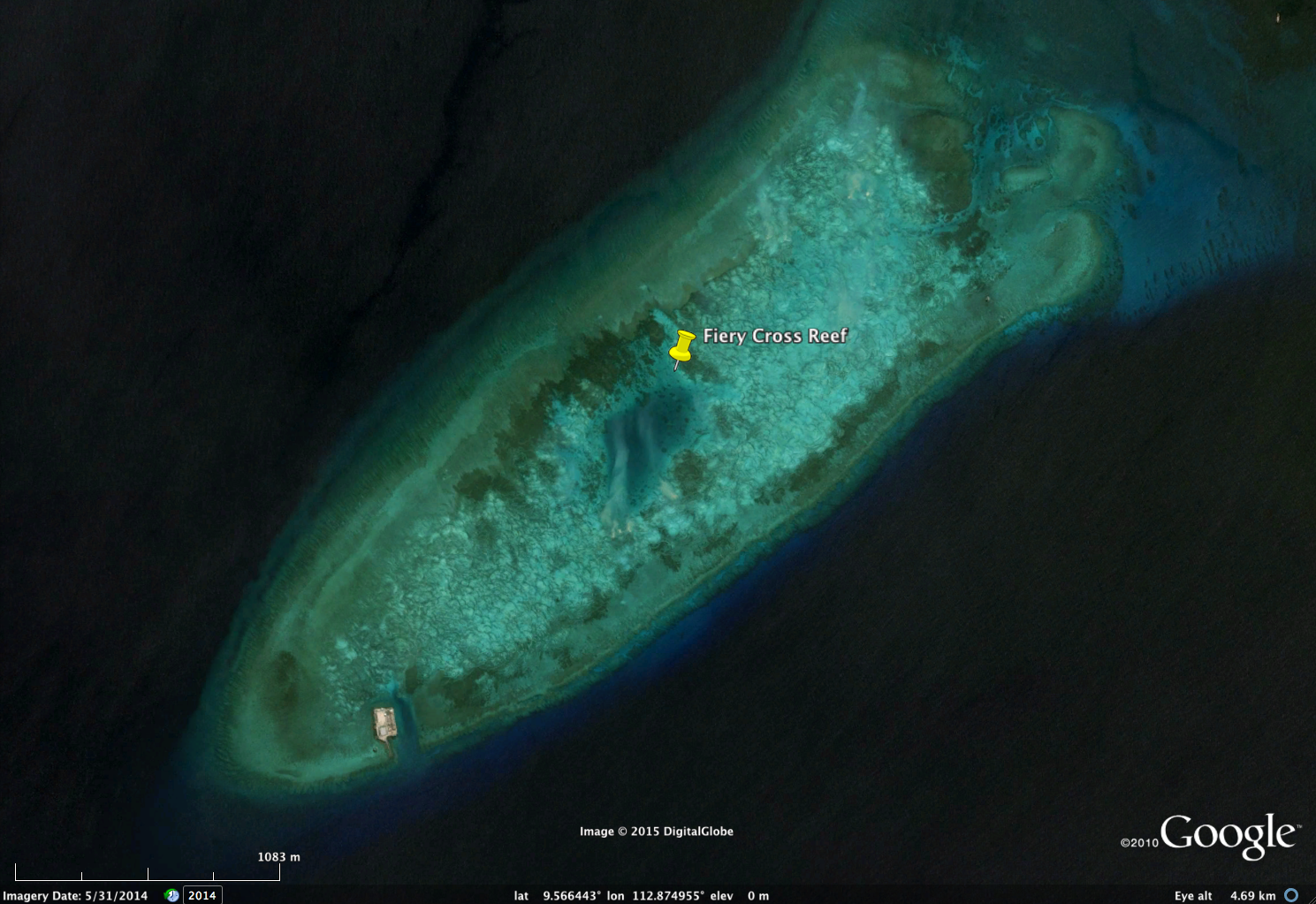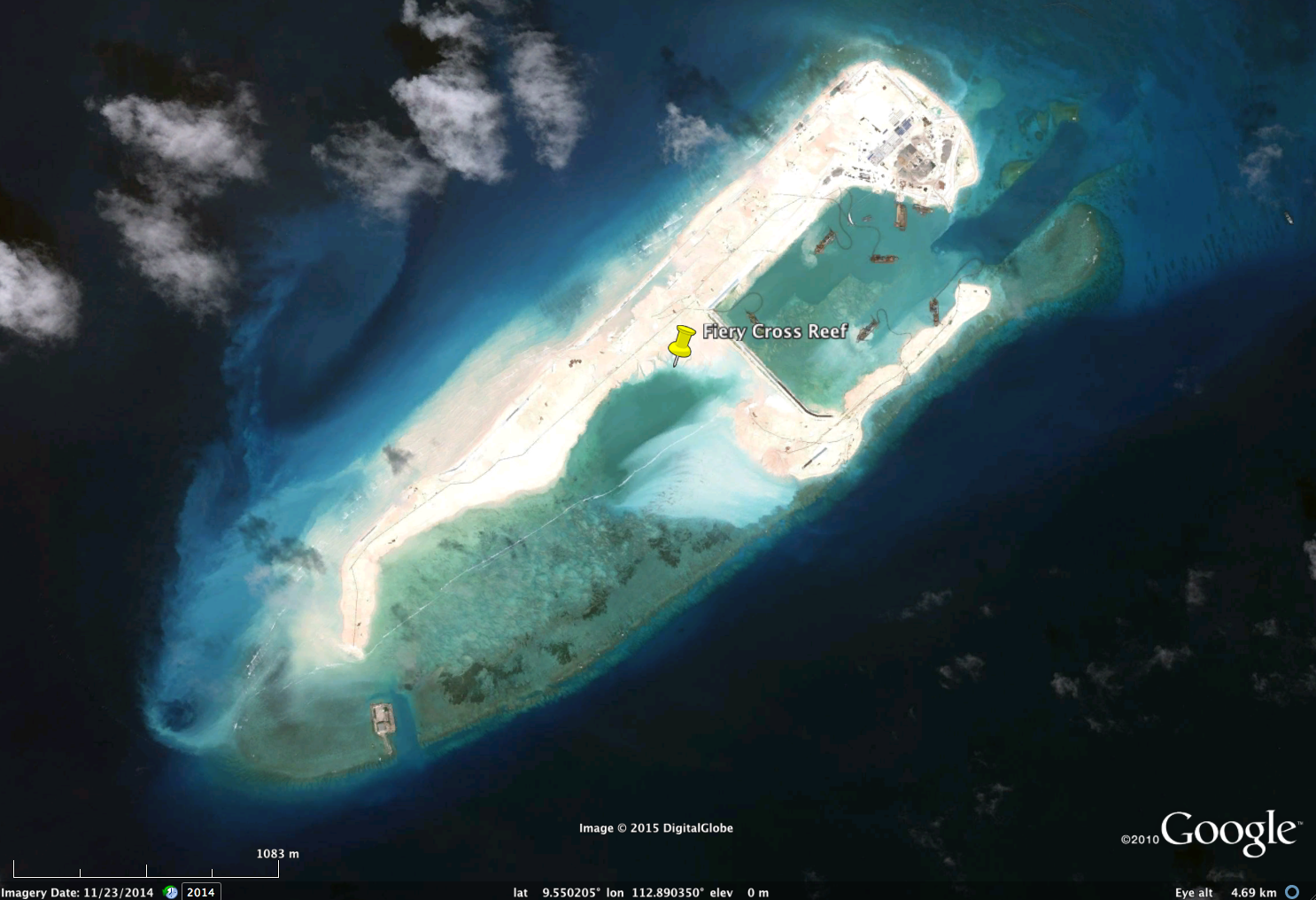South China Sea land reclamation isn’t just a geopolitical issue
My (Elizabeth's) commentary piece in this week’s issue of Nature, “Land reclamation: Halt reef destruction in the South China Sea”, describes how China’s aggressive and ongoing land reclamation pursuits in the South China Sea have been highlighted as a pressing geopolitical problem, but they are also causing irreversible destruction of one of the world’s most sensitive and threatened ecosystems: coral reefs.
In addition to the estimates of reef loss that’s already occurred (as calculated by the Asia Marine Transparency Initiative), I used recent historical imagery in Google Earth to measure a few of the resulting sediment plumes. I found that remaining coral is likely being smothered daily by current-borne plumes nearly twice the size of the archipelago’s total reef area lost (unpublished data). For coral reefs, which are a food source for ~500 million people worldwide and are facing global decline, this escalating scale is non-trivial.
This latest demonstration of Chinese geopolitical aspirations provides an urgent impetus for the global scientific, conservation and law communities to unite to halt this destruction. Scientists, including citizen scientists, can readily quantify reef loss with freely-available imagery and tools in Google Earth. Using these data, international governing bodies can and should trigger enforcement actions for China’s obligations under international law.



